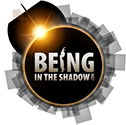RESEARCH PROJECTS
I engage in research related to the total eclipse experience and community eclipse planning to develop evidence-based resources that I distribute freely to others.
My research program is self-funded and completed in my own time with my own personal resources when traveling before and after each eclipse. Funding will allow for resources to collect and distribute information in a more timely manner. Get in touch if you can support my research.
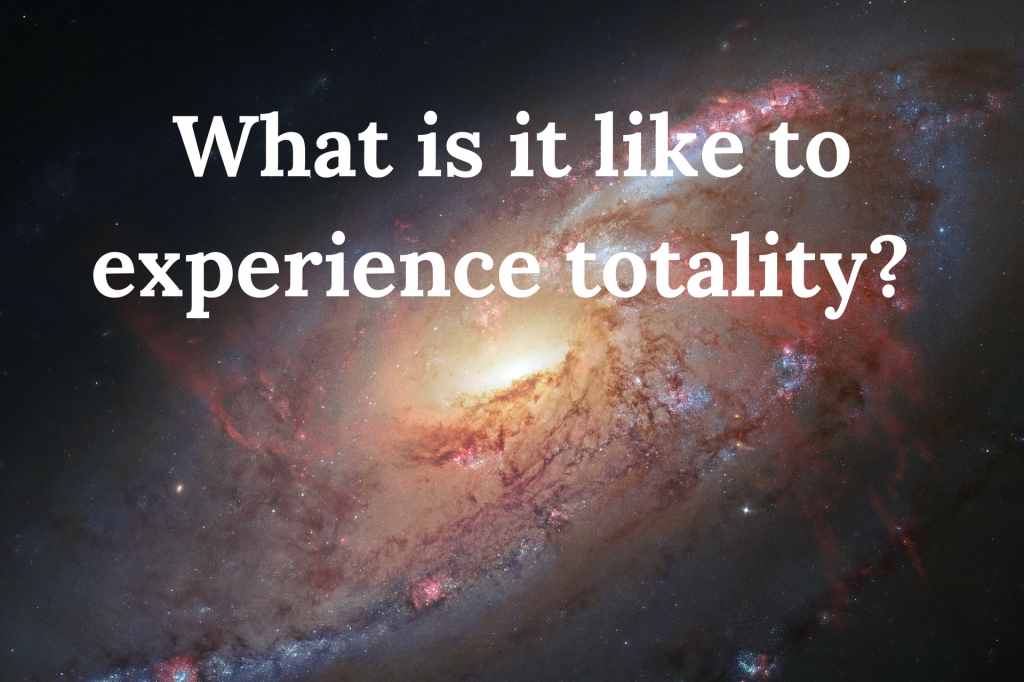
What is it like to experience totality
Status: Survey and interviews completed in 2011.
Dissemination: Published in 2012 in Total Addiction: The Life of an Eclipse Chaser; presentation at many lectures and events, extensively in the media
This project aimed to answer the question that everyone wants to know – what does it feel like during totality? This sounds like a simple question to answer, but it is not for many reasons. Firstly, the totality experience is often completely overwhelming, so we are not able to easily make sense of it. Secondly, there are not the words to describe what it is like. And finally, we are expected to answer this question in a neat soundbite. Impossible!!
I chose to survey eclipse chasers for this project. Eclipse chasers are more likely to be able to make sense of totality by virtue of repeated experience. Using surveys allowed for a collation of common experiences to be identified, and in-depth interviews allowed full exploration of the experience.
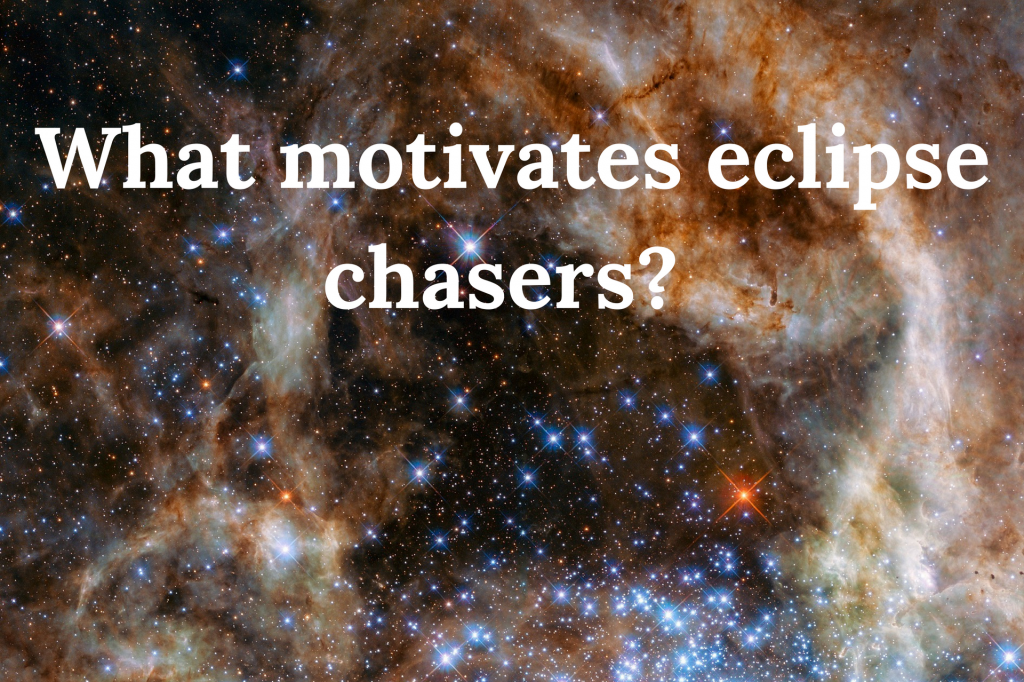
What motivates eclipse chasers?
Status: Interviews completed in 2011.
Dissemination: Published in 2012 Total Addiction: The Life of an Eclipse Chaser using nine case examples; presentation at many events.
For some people, seeing a total solar eclipse seems to ignite a never-ending source of motivation that sees them through a lifetime. Having felt this myself, I was curious – where does that passion come from, and why is it so strong that it seems to overtake our plans and become a way of life?
I was able to identify how every eclipse is different, ensuring there was novelty every time and avoiding habituation that often occurs with repeated exposure to an exciting event. Also, most eclipse chasers were developing a sense of mastery over some aspect of their eclipse chasing or using their existing skills to help others. Psychological research has shown that these factors are strong drivers, and also contribute to a meaningful life.
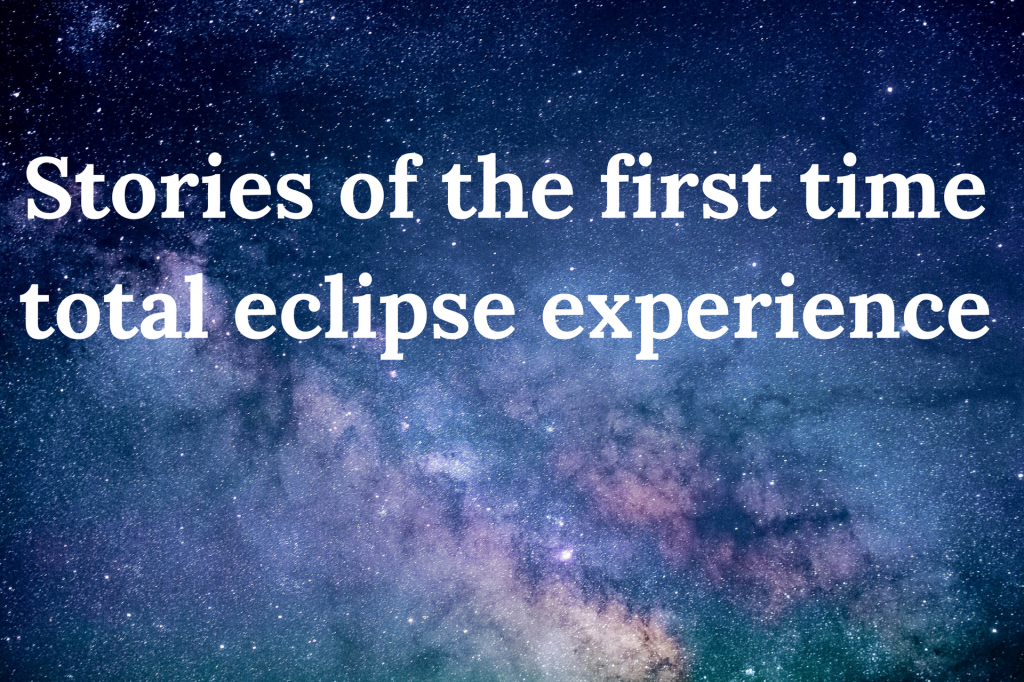
Stories of the First-time Total Eclipse Experience
Status: Interviews completed in 2012, the project completed 2017.
Dissemination: Publication of stories in book 2 Totality, and book 3 Being in the Shadow, plus various presentations.
In 2012, I went home to Far North Queensland to research the first time eclipse experience for a number of people. I used local media to recruit local participants, who then completed a survey before and after the eclipse. This research shows that many people do not think the total eclipse will be interesting, assuming it is no different to a partial eclipse. However, afterwards, they wonder why they were not informed of how amazing it is!
Shorter stories can be read in my second book Totality: the Total Solar Eclipse of 2012 in Far North Queensland. More detailed stories of six individuals who were most clearly able to describe their experiences in a rich and detailed way are published in Being in the Shadow.
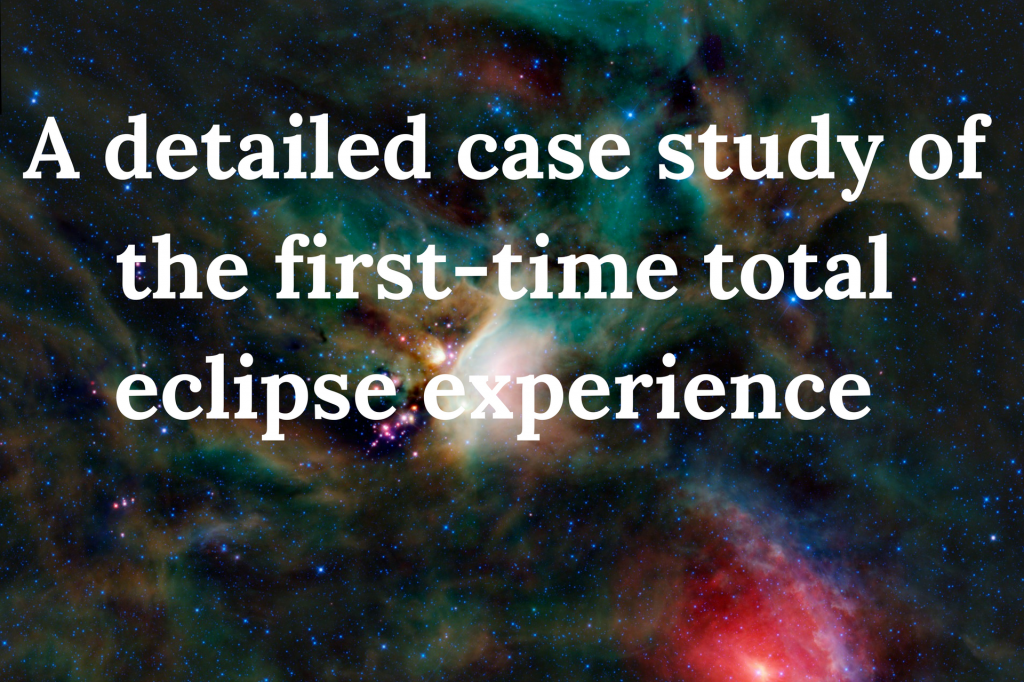
A detailed case study of the first time eclipse experience – “The moment I lost my mind”.
Status: Interview completed 2012; case study was written up 2015.
Dissemination: Abstract submitted and presentation at International Adventure Travel Conference at Sheffield Hallam University in 2015; case study also presented as part of a lecture series on board the Astor in 2015. to be published in late 2017.
Following the total eclipse of 2012 in my home region, I interviewed many locals and visitors about their first-time eclipse experience. The account given by Wayne was especially detailed and powerful. This very detailed and emotive case study is a powerful way to demonstrate how an ordinary person living in the path of totality can be impacted by their first time total eclipse experience. This case study explores Wayne’s expectations, the eclipse experience, and the impact that it had upon his life, using Interpretative Phenomenological Analysis to capture the key themes.
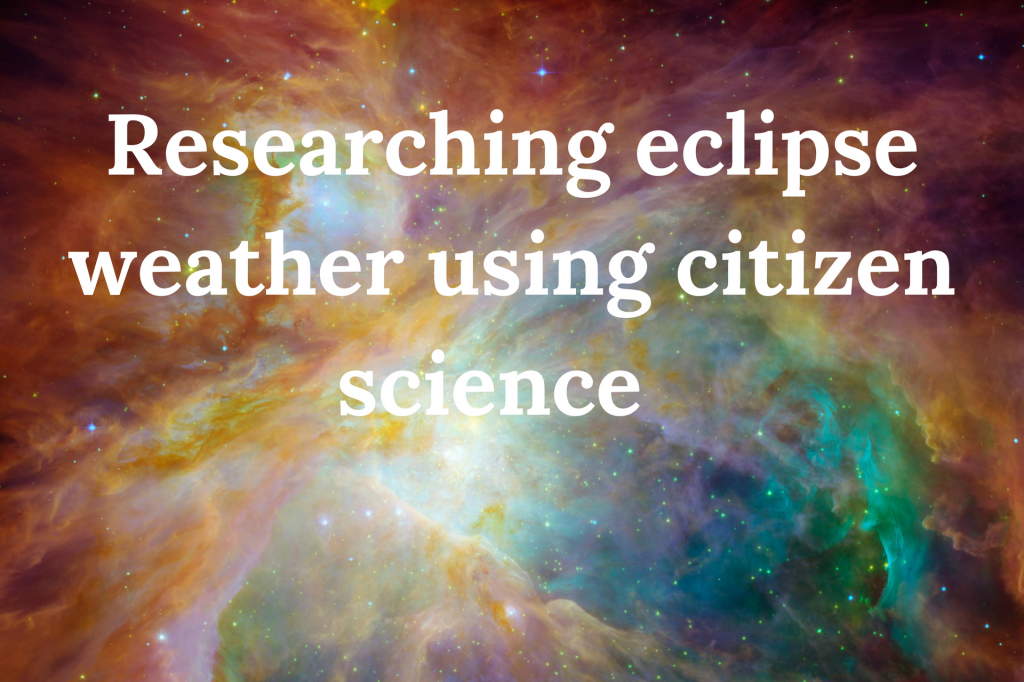
Researching eclipse weather using citizen science
Status: Citizen science input completed in 2014
Dissemination: Published in the December 2014 edition of The Journal of the Royal Astronomical Society of Canada.
One of the concerns about the 2015 total eclipse in the Faroe Islands was the unsettled weather in March. Using historical data for eclipse weather predictions was problematic, as the data was averaged across the day from only one location.
Dr Geoff Sims – a fellow eclipse chaser – led a citizen science project to capture weather data at eclipse time in March, the year before the eclipse. Citizens were asked to take photos of the Sun at the same time every day for a month. The observations were then compared to the predicted weather at each location to determine forecasting accuracy. We can explore historical climate patterns, but as the saying goes, climate is what we expect, and the weather is what we get.
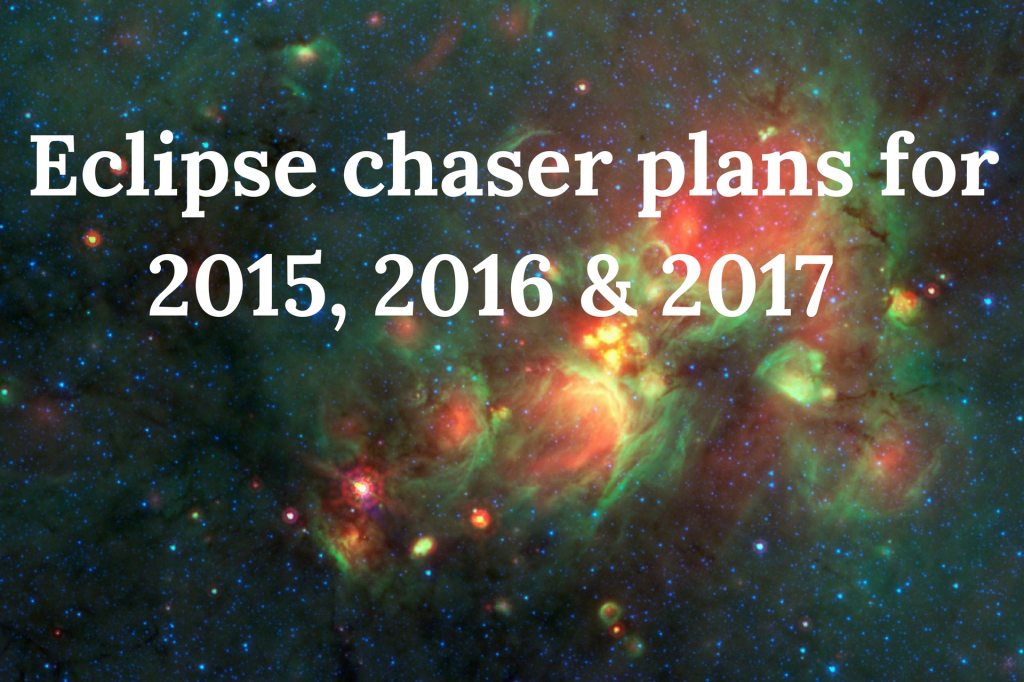
Eclipse chaser plans for the next three total eclipses
Status: Survey completed in early 2014.
Dissemination: Results presented at the Nordic Eclipse Conference in March 2014 in the Faroe Islands.
In early 2014, I undertook a brief survey of eclipse chasers to explore what their plans were for the next three total solar eclipses – 2015, 2016, and 2017. The response rate was quite low at 10%, so these results are not generalizable.
For those who did respond, this survey indicated that 60% were definitely planning to travel to the 2015 total eclipse in the Arctic region; 41% to the 2016 eclipse in Indonesia, and a whopping 94% to the U.S. eclipse in 2017. The main barriers for deciding not to travel were weather and cost.
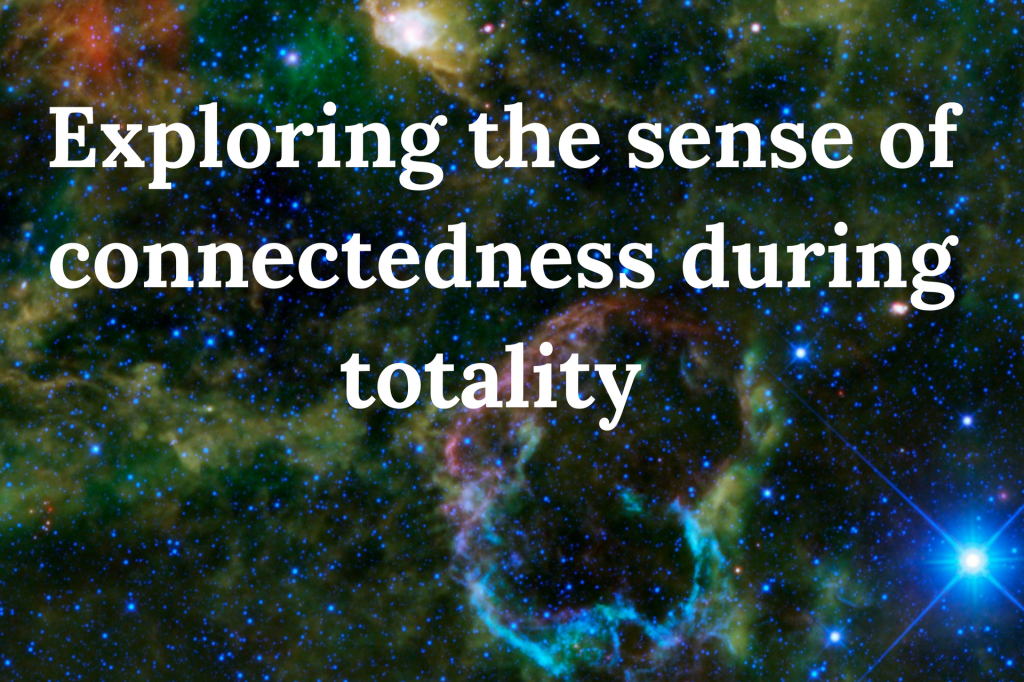
Exploring the sense of connectedness during totality
Status: Initial data collection completed; ongoing collection of data following every total eclipse ongoing.
Dissemination: Videos used in presentations; materials used to inform media reports; materials will form part of a future documentary about the emotional response to totality – project sponsorship is required.
Immediately after the 2016 total eclipse, I ran a post-eclipse workshop at the Sulawesi Eclipse Festival in Palu, Indonesia. In this workshop, we shared our personal experiences of the wonderfully clear and emotive total eclipse. There were tears, there was gratitude, there was a great feeling of being at one in the world. It was pretty special.
Participants then recorded individual experiences on camera, describing what totality was like; and exploring their lived experience of connection. These interviews have helped to describe ‘the ineffable’.
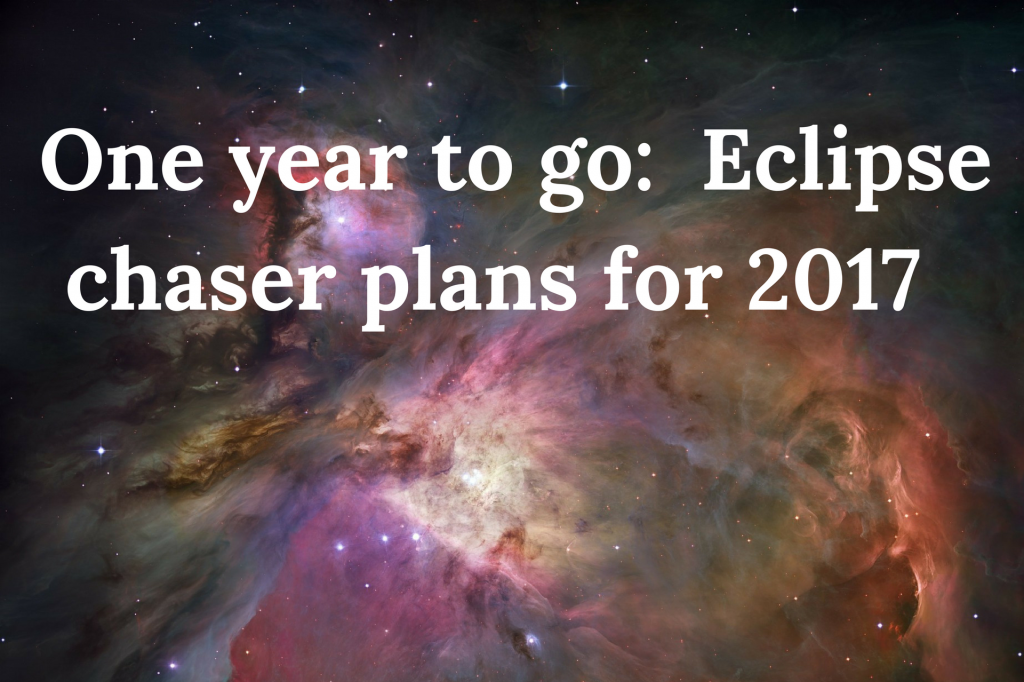
One year to go – Eclipse chaser plans for 2017
Status: Survey completed in August 2016.
Dissemination: Results used in ongoing consultations with eclipse coordinators for planning; also in presentations.
In August 2016, one year before the total eclipse, I surveyed eclipse chasers about their plans for 2017. The response rate was around 27% of the group sampled. 54% had made all their plans one year before the eclipse.
95% were selecting their viewing location based upon historical weather data. Only 3% felt going to the point of greatest duration was important. The majority of respondents – a huge 84% – were heading towards the first four states, because of more favourable weather- Oregon, Idaho, Wyoming and Nebraska. 79% felt it was important to be near the centre-line and three-quarters of those surveyed felt mobility on the day was important. The many insights from this data have been used to inform community planning.
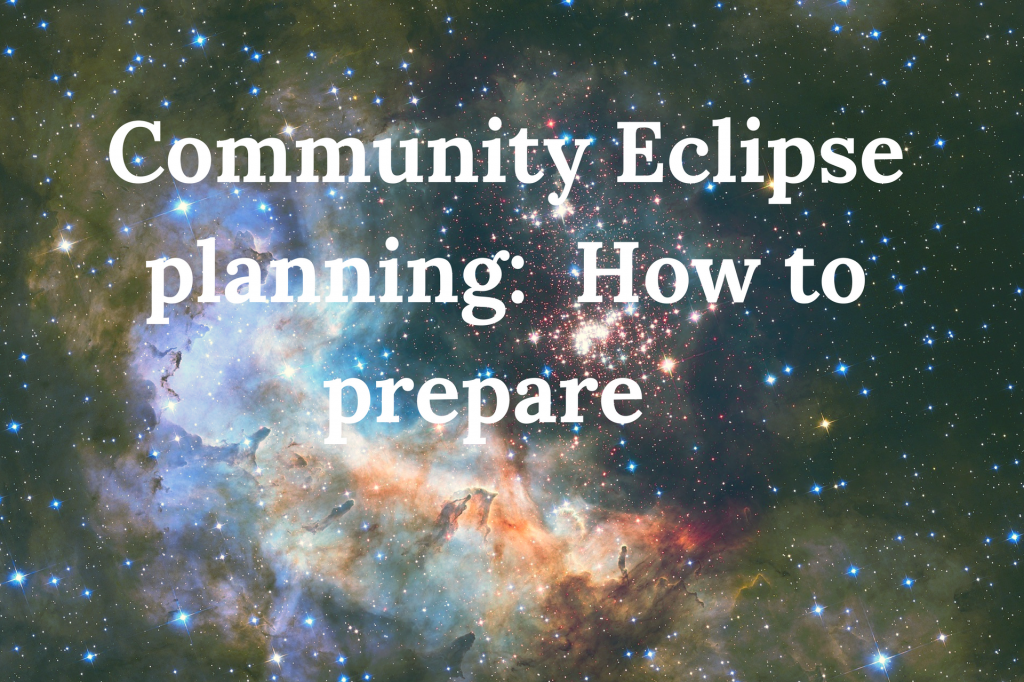
Community Eclipse Planning – how to prepare
Status: Interviews completed in 2012, and 2015.
Dissemination: White Paper on Community Eclipse Planning, launched at the Portland AAS meeting 2015; disseminated to eclipse coordinators across the US in 2015, downloadable from my website; Information used in consultation sessions.
In 2012, while undertaking research interviews before the eclipse, I identified that the local community was not engaged in eclipse planning, and perceived the eclipse plans were purely for tourists coming in. I undertook community engagement activities, which addressed this gap and afterwards interviewed eclipse coordinators exploring hindsight lessons. I applied what I learned in my role as Eclipse Consultant in 2015 in the Faroe Islands, and again afterwards, engaged in interviews to identify key learning points about planning. The White Paper is aimed at communities within the path and highlights the need to start planning early, and to engage stakeholders and the community to ensure the eclipse has a lasting legacy in the region.
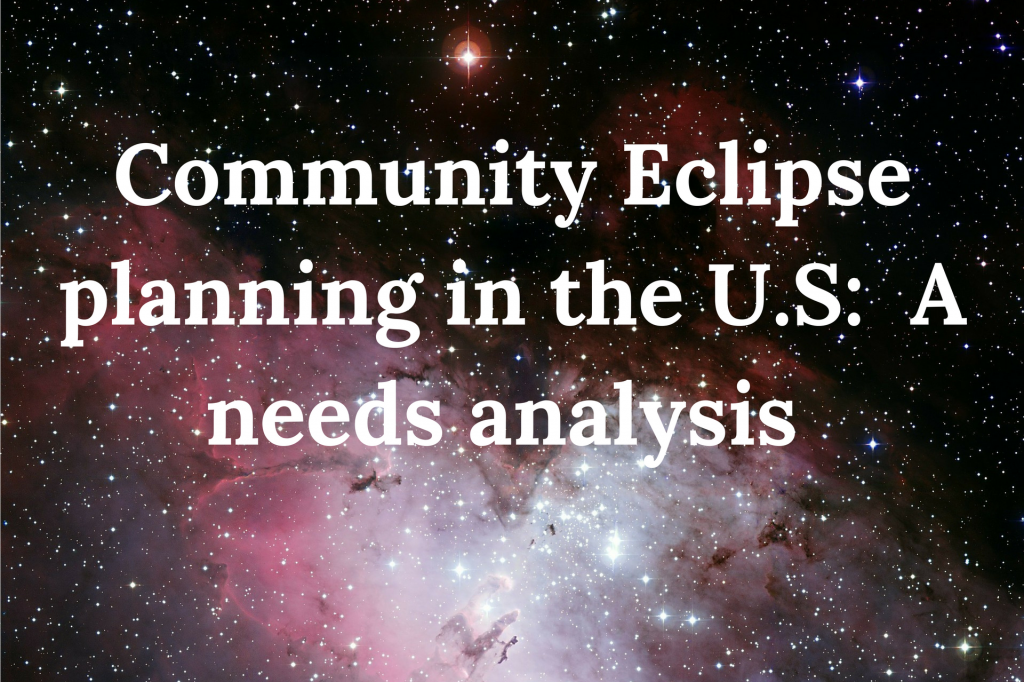
Community Eclipse Planning in the US: A needs analysis
Status: Major needs analysis survey planned in 2016 but unable to secure resources to complete; smaller needs analysis completed in Jan 2017
Dissemination: Results extensively drawn upon to inform advice in consultations with eclipse coordinators for planning; included in White Paper on Community Eclipse Planning; and in presentations.
Over a thousand communities fell within the path of totality for the 2017 total solar eclipse. As there had not been a total solar eclipse in the U.S. since 1979, this was unknown territory for many communities. I undertook a needs analysis of 31 communities across 10 states along the path of totality. This information informed community eclipse planning consultations, advice, and development of the updated White Paper in Community Eclipse Planning. I had planned a detailed tour of the path of totality to visit these regions, delivering what was needed, however, this did not occur due to changes in US visa requirements.
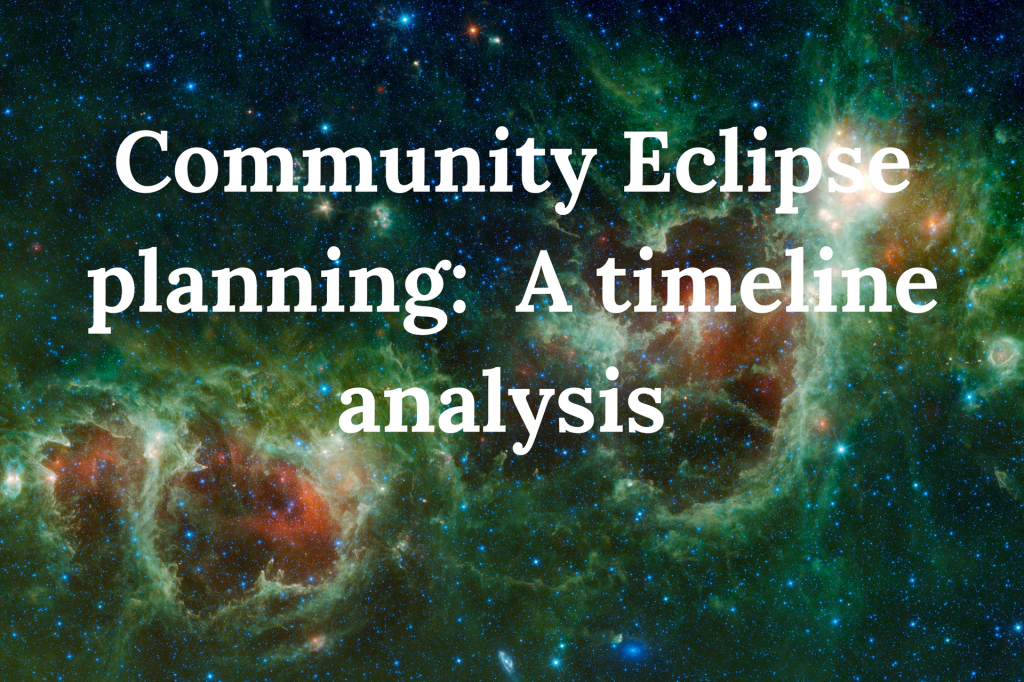
Community Eclipse Planning – timeline analysis
Status: Interviews at key time points in the year before totality 2017 – data collection completed
Dissemination: Information used in consultation sessions;
sponsorship required to support formal dissemination
The White Paper in Community Eclipse Planning was an important guidance document for communities preparing for a total solar eclipse. However, it did not indicate a time frame for required activities. For this project, I undertook interviews with eclipse coordinators at different time points in the planning process – 12 months to go, 9 months, 6 months and 3 months, and 1 month; as well as following the eclipse. This information will provide a useful and detailed framework for future planning, stressing the need for starting early, and highlighting key tasks at different points of time.
This project would benefit from sponsorship.
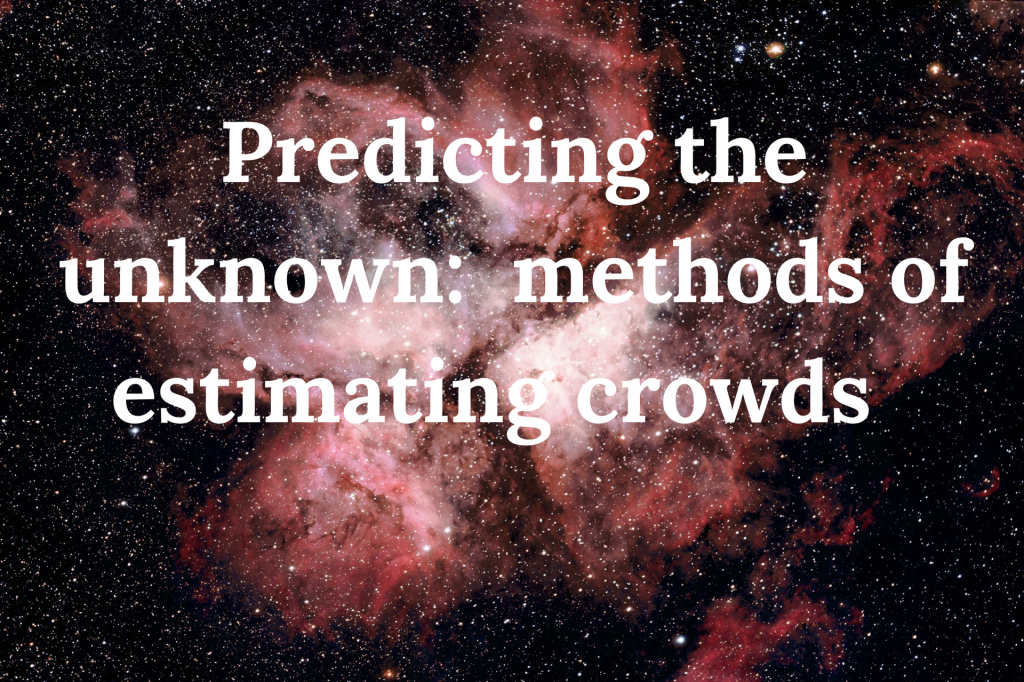
Predicting the unknown: how to accurately predict numbers for your region
Status: Pre-eclipse and post-eclipse interviews from totality 2017 completed
Dissemination: Information used in consultations with eclipse coordinators; and in presentations. Sponsorship is required for detailed analysis of information and formal dissemination.
When planning for a total eclipse, one of the key unknowns is how many will travel to your location. I worked with many communities along the path for 2017 helping to estimate the numbers expected. Important factors were located along the path, road networks, general tourist appeal, weather predictions, past community events, and marketing infrastructure. Several methods were suggested. Following the eclipse, interviews were then repeated to determine the accuracy of predictions. Discussions about the accuracy of predictions will shed light on how to explore this for future eclipse planning.
Interested in supporting my research?
This may take the form of sponsoring a project, providing a time-limited bursary, facilitating a writing residential, or other creative ways of support that are mutually beneficial. Get in touch, or consider making a donation.
